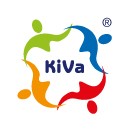
About KiVa
In 2013, the charity Children’s Early Intervention Trust (CEIT) pioneered the adoption of the Finish anti-bullying programme KiVa in schools in England and Wales. KiVa has a strong theoretical basis and decades of research demonstrating its effectiveness as a whole school approach. The programme is based on evidence that the way peer bystanders react (bystanders are neither the bully nor the victim) when witnessing bullying is crucial in either maintaining or ending bullying. The programme influences the peer context by teaching bystanders to identify and intervene when they witness bullying.
What is KiVa?
KiVa is an anti-bullying, evidence-based programme developed in the University of Turku, Finland, delivered by teachers in school.
What is bullying in the KiVa programme?
Bullying is defined as intentionally and repeatedly causing distress or harm to the same individual. In addition, it is difficult for the bullied child to defend themselves, due to a power imbalance between the two parties. Bullying includes verbal abuse and public ridicule, but can also be hidden, and / or occur online.
How does the KiVa programme address bullying?
Bullying is a group phenomenon. children who bully seem to be motivated by the pursuit of visibility, power and a high status within a peer group. For this reason, bullies need bystanders or spectators. Bystanders play different roles in a bullying situation. They may reinforce a bully’s behaviour through verbal or non-verbal signals that are socially rewarding. These signals suggest bullying is acceptable, or even funny and entertaining. Other bystanders may be more active and join in, others may silently witness what is happening, without acknowledging this may be interpreted as supporting the bully. Few pupils who observe bullying have the courage to intervene or take the bullied child’s side.
KiVa’s key message is that we are all responsible for our shared well-being. If everyone could be motivated to think of ways to help their classmates and peers, instead of taking part in bullying, a large part of the bullying problem would be eliminated.
You can read more about bullying and how KiVa addresses the issues surrounding this issue, by both educating pupils and providing an intervention when bullying happens, on the KiVa website.
Become a KiVa school!
Kiva is not meant to be a one-year project, but a permanent part of the school’s anti-bullying work.
KiVa schools follow a specific procedure in prevention and intervention.
KiVa means…
- anti-bullying lessons for targeted year groups, fun activities for pupils, learning by doing, concentrating in groups
- engaging the whole school in anti-bullying work, raising awareness on bullying and its consequences
- informing pupils, parents and the whole school community
- clear intervention model when byllying emerges
- training for personnel
- annual surveys to keep track of the school’s situation and results
KiVa in the UK
CEIT trading subsidiary, Early Intervention Wales Training (EIWT) has been licensed by the KiVa developers to train both trainers and schools to deliver the KiVa programme in the UK and acts as the UK administration centre.
Until recently, the programme has only be delivered into primary schools in the UK, however, the programme is now also being delivered in some Welsh secondary schools.
See our newsletter for ongoing research and for more information on KiVa, see our KiVa booklet.
Research
CEBEI has undertaken research into the programme in the UK since 2013.
KiVa research is available here
Contact us
You can contact the KiVa UK hub for more information here


